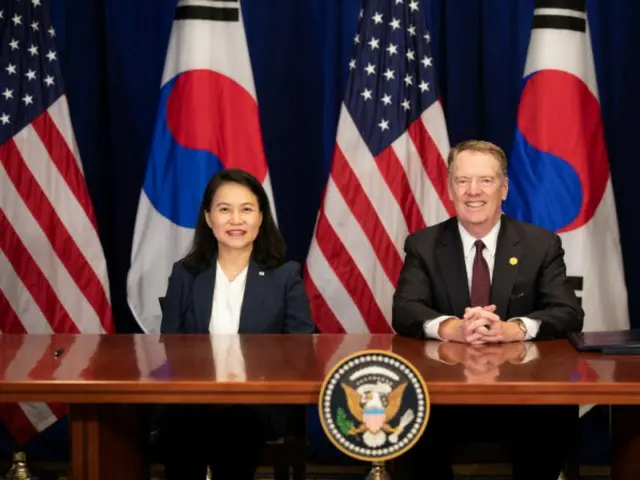"It is expected that the scope of the "synchronization" will be further expanded," said Yoo Myung-hee, visiting professor at the Graduate School of International Studies at Seoul University, at the E-Day seminar held at KG Tower in Jung-gu, Seoul on the 8th.
"The trade and economic friction between the United States and China will get worse in the future," he said in an interview with Reuters. In fact, President-elect Trump has proposed imposing a maximum 20% tax on all products imported from all countries.
He pledged to impose a "universal tariff" of 100% on imports from China and declared that he would impose a 60% tariff on imports from China. He also pledged to halt the most-favored-nation status (MFN) that the United States has granted to China since 1980.
Professor Yu said, "It is important to maintain relations with China, which is Korea's largest trading partner," but added, "We should not be concerned about the future of our relationship with China.
"However, over the next few years we will need to manage the risks arising from our excessive reliance on China."
Among the people to watch in Trump's second term are Robert
・Lighthizer, the former U.S. Trade Representative (USTR), was named. Lighthizer, who is known as the "architect of trade protectionism," served as USTR for four years in Trump's first term.
In order to protect the environment, Trump imposed tariffs of up to 25% on imported steel and aluminum products, and was the first to impose tariffs on imports from China.
Lighthizer is known to still wield considerable influence over Trump's trade and economic policies.
There is a strong view that he will assume important responsibilities such as the head of the USTR and the Secretary of the Treasury in Trump's second term. Professor Yoo said that, in contrast to the usual tone of Trump's second term,
The main criterion is the trade deficit, regardless of whether it is related to the WTO or the US-Korea FTA. Any measures to reduce the trade deficit can be implemented regardless of whether it is in violation of the World Trade Organization (WTO) or the US-Korea FTA.
Professor Yoo said that if there is no progress within two months of the deadline, the government will not hesitate to introduce new measures.
It is no exaggeration to say that the Yoon Seok-yeol administration's trade policy is to "strengthen strategic cooperation in the supply chain with the United States and establish a position as an indispensable partner."
Professor Yoo gave a positive evaluation, saying, "We have strengthened the framework for cooperation with developing and emerging countries in the Southern Hemisphere, and have successfully completed FTA negotiations with the Six-Party Regional Cooperation Organization (MRCO)."
"We are steadily strengthening cooperation in the areas of investment and supply chains," he said. Trump's second term in office is expected to see stronger protectionist trade policies than those implemented in his first term eight years ago.
Concerns are growing over the impact that the US-bound exports will have on the Korean economy.
"There are certainly factors that could create a chance for a new president to take office," he said. "If we respond thoroughly, we can successfully resolve any difficult situation." He continued, "I was with Trump eight years ago during his first term.
"The people who dealt with the administration are still on the ground, so I expect them to respond firmly based on their past experience," he added.
2024/11/11 07:29 KST
Copyrights(C) Edaily wowkorea.jp 107

